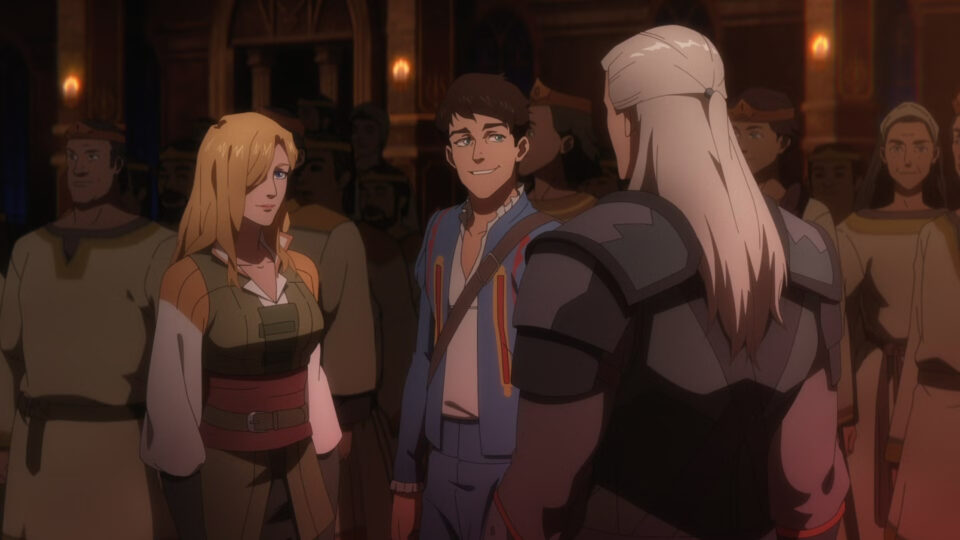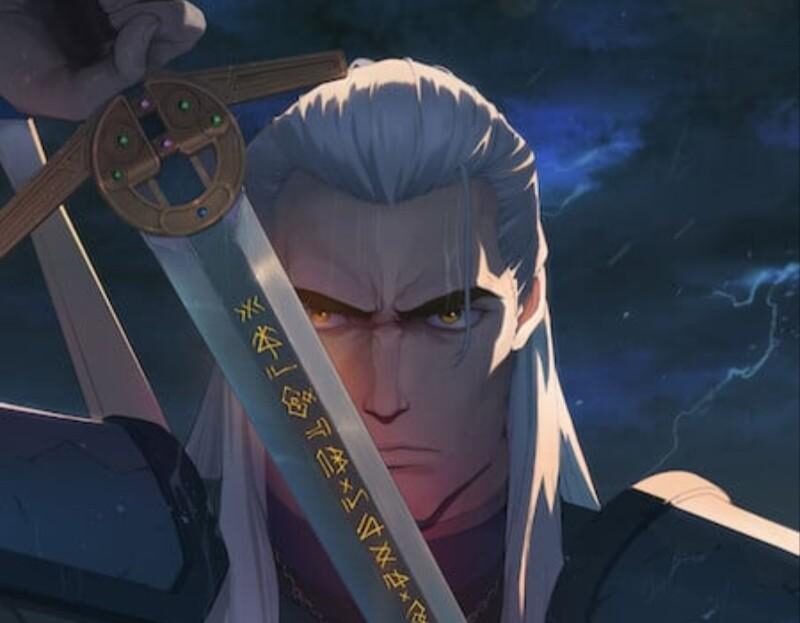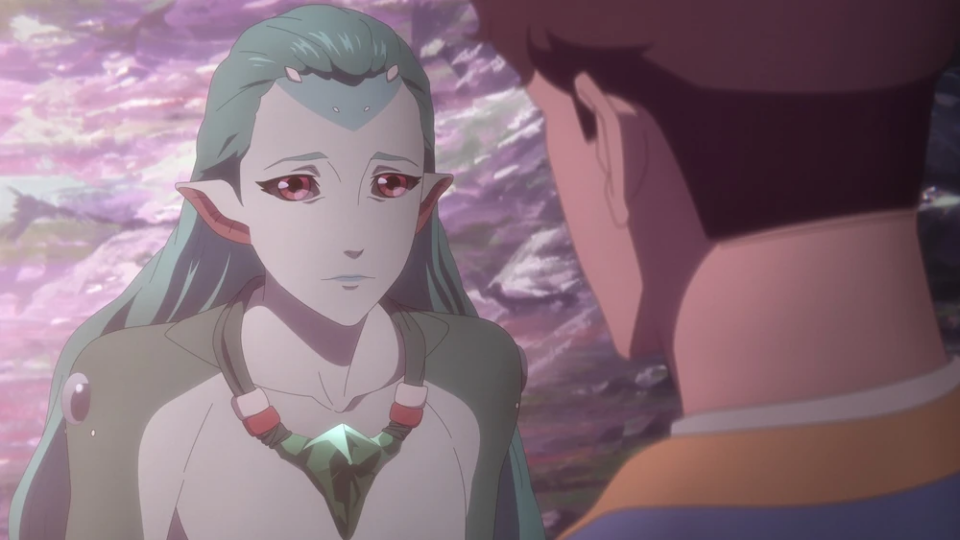‘The Witcher: Sirens of the Deep’ Review – Sink, Do Not Swim
The only sacrifice in Netflix’s animated adaptation of the short story ‘A Little Sacrifice’ is the sacrifice of time and effort on a butchered retelling of a bittersweet tale. As its title suggests, this film needs to be sunk into the depths of Skellige’s waters where no one can find it
A witcher is a professional monster slayer. A human, who has undergone a genetic mutation to enhance his physical prowess and senses, to go toe to toe with creatures who haunt the nightmares of the populace of the Continent for a paltry sum of coin.
But even witchers, powerful though they may be, sometimes find themselves struggling to kill their target.
Occasionally, the monster is far beyond even the witcher’s capabilities. At the end of the day, what is a witcher but a mutated human?
Other times, the creature, monstrous in appearance, may not be the monster at all.
“Evil is Evil. Lesser, greater, middling… Makes no difference. The degree is arbitrary. The definition’s blurred. If I’m to choose between one evil and another… I’d rather not choose at all.”
For Geralt of Rivia, adhering to his moral compass of true neutrality often causes his purse to feel lighter than it should be.
As is the case in the story, A Little Sacrifice, from the novel The Sword of Destiny, which Netflix has now adapted into the animated film, The Witcher: Sirens of the Deep.
This film follows the continuity of the Netflix adaptation of the Witcher novels by Andrzej Sapkowski. Which is to say, it is a high-budget mediocre fanfiction gone out of control. To summarize it in a single sentence, it is The Little Mermaid (Disney edition) meets Romeo and Juliet in the world of the Witcher. Aside from the names of the characters, it has very little to do with the source material.
The film has only two things going for it — the art and the voice acting.
The Netflix cast of The Witcher provides the voices with both Joey Batey (Jaskier) and Anya Chalotra (Yennefer) reprising their roles from the series. The only exception is Geralt, voiced by Doug Cockle who originally voiced Geralt in the Witcher video game trilogy from CD Projekt RED. Despite it being strange that the animated Geralt looks unmistakably like Henry Cavill, there’s a certain familiarity in hearing Geralt speak in the same voice we’ve been hearing for 20 years. The sonorous mermaid dialect described in the short story has also been brought to life quite accurately.
The visual style is exactly like the previous Netflix animated Witcher film Nightmare of the Wolf, with characters being 2D anime-esque editions of their live-action counterparts. Cleverly blending a mix of 2D and CGI, Sirens of the Deep’s art style is aesthetically pleasing.
The combat scenes are a mix of the live-action series and the video games. His combat prowess is near superhuman, in the film. Book Geralt, let alone Game Geralt at level 100, stands no chance against this animated Geralt who gracefully dances across the battlefield, swiftly cutting down enemies without breaking a sweat or ripping apart the iron chains that cage him.
The witcher signs we all know, love and repeatedly press on our controllers or keyboards make a comeback. One can almost feel the press of the key under one’s finger as Geralt uses igni and unleashes a fiery counter. The signs themselves are used interestingly in the film, like using aard underwater to create an air pocket. The attention to detail in Geralt using potions and elixirs combined with the display of toxicity reflected on his face is also a familiar callback.
But this is all the film has going for it.
To say that the Sirens of the Deep has taken poetic license to change A Little Sacrifice would be a big understatement.
In the short story, Geralt and his troubadour companion Dandelion (Jaskier) find themselves in the Bremervoord seaside. Quite literally penniless, because Geralt’s moral compass makes it difficult for him to finish the job, Dandelion makes a deal saying they both will take the next job that comes their way, come hell or high water. A little sacrifice for their survival.
Dandelion accepts work to perform at a small local wedding, playing second fiddle to his acquaintance ‘Little Eye’ Essi. Geralt, meanwhile, agrees to work for the arrogant Duke Agloval to investigate the killing of his pearl divers.
There are two (if you squint, three) bittersweet love stories here that run in tandem.
Agloval wants his mermaid love Sh’eenaz to trade her fins for feet. Or be caught in a net. Sh’eenaz instead puts forth the question of why Agloval can’t make that sacrifice for her instead?
Essi has fallen hard and fast for Geralt, a witcher whose emotions have been stripped from him. A witcher whose heart only beats for the raven-haired sorceress Yennefer. Essi genuinely loves Geralt and cannot help but resent him for not being able to return her feelings.
Geralt, uncomfortable at Essi’s confession, feels bad that he’s unable to reciprocate her affection. At the same time, it dawns on him that he may be feeling exactly what Yennefer feels when she’s around him.
In the end, Sh’eenaz makes ‘a little sacrifice’ in the name of love, coming to live on land with the Agloval who certainly doesn’t deserve it. Essi and Geralt go their separate ways, never to meet again. Essi dies four years later, alone, buried only with her lute and the pearl Geralt had gifted her.
At the same time, this is one of the stories where we see the difficulties that witchers grapple with. It showcases a rare vulnerability that neither the show nor the games delve into. Some fights are way beyond a simple witcher’s pay grade. They aren’t all-powerful superhumans, just a bit tougher than regular humans. It also does a great portrayal that fighting on an unfamiliar terrain can be more deadly and dangerous than fighting the Wild Hunt. It’s better to escape by the skin of your teeth than die a prideful fool for an even more foolish cause. While Sirens of the Deep excelled in combat sequences, they missed the mark on how dangerous life can be for a witcher.

In Sirens of the Deep, everything has been changed from story to character histories. Not even Jaskier is safe, as his life has been rewritten to bring some stronger ties to the Bremervood.
Agloval’s has changed from duke to prince, with his personality being transferred to a film-only character — his father, the king. He has now been relegated to a lovestruck Romeo madly in love with his aquatic Juliet, mermaid Sh’eenaz.
With Geralt’s role as mediator between the prince and the mermaid being given to Essi, you wonder what he’s even doing there. Other than painting the deck of the ship red with blood.
Sh’eenaz, meanwhile has been made underwater royalty with a soap opera family replete with an aunt who is an evil sea witch, who turns into a kraken. Truly, Netflix’s witcher bestiary is clearly something beyond the scope of a simple witcher who hails from Kaer Morhen.
Sh’eenaz’s aunt has been watching The Little Mermaid on repeat because the scene where she offers her precious niece a potion to turn human clearly pays homage to fellow sea-witch Ursula, right down to taking the form of a mortal princess to marry Agloval. Predictably, the ending has a role reversal of the original with Agolval joining the fish folk by drinking the potion instead. An end one sees coming a mile away.
The tiring Montague-Capulet rivalries of star-crossed lovers (not there in the original) aside, there’s another unnecessary tension in the plot. The king’s bastard son Zelest (a mere bailiff in the original) seeks to desperately prove himself to his father by acting as a blind puppet until he suddenly has an unnatural change of heart after years of being cruel.
The unnecessary side characters, motivations and conflicts take out the punch the original story had and the message it carried. There is no sacrifice here, at all. It is all rather pointless and could have been easily avoided. The core concept of A Little Sacrifice, the poignancy of making that seemingly insignificant sacrifice, which may not be worth it for the one you love, is lost. That bittersweet pill you swallow after you finish reading Dandelion’s song in the short story has been replaced by the taste of drowner blood in Sirens of the Deep.

In the short story, Geralt and co are penniless, tired, nursing their wounds and leave the humans to resolve the underwater problem on their own. Ultimately, the Duke and his minions in the pursuit of greed, think it’s possible to deal with a dangerous intelligent enemy, as child’s play. Their foolish misplaced hubris — to believe that just as they conquered the land by driving the elves away they can conquer the sea — comes through in the story. It drives home the message that sometimes humans are the real monsters here. While simultaneously showing that no matter the consequences, Geralt will stick to his code of true neutrality.
The short story also paints a vivid picture of how difficult life is as a witcher. He toils, he bleeds, he puts himself in mortal danger and yet, the populace is ungrateful. Geralt is treated only marginally better than the non-humans they want him to hunt down.
Here in the film, Geralt, despite sticking to his ‘code’ gets a lot more involved with the proceedings than he normally would have. Leaving with a light heart and heavy coin purse, the turbulent views of the Continent are never brought into focus at all.
The film ends with a promise of adventure and hints at Netflix eyeing more butchered adaptations of the source material. It does not seem unreasonable to ask why there cannot be an adaptation that actually respects the source material. There is the reason that the stories are loved, and for some reason, any Netflix adaptation ends with turning a good tale into a painful watch.
At this juncture, Geralt’s greatest foe is not Emhyr or Eredin or even a local grave hag. It is Netflix with its insistence that the abomination that they’ve conjured up needs to be inflicted upon the world.
Sadly, Geralt doesn’t have a snowball’s chance in hell of beating this particular monster.








